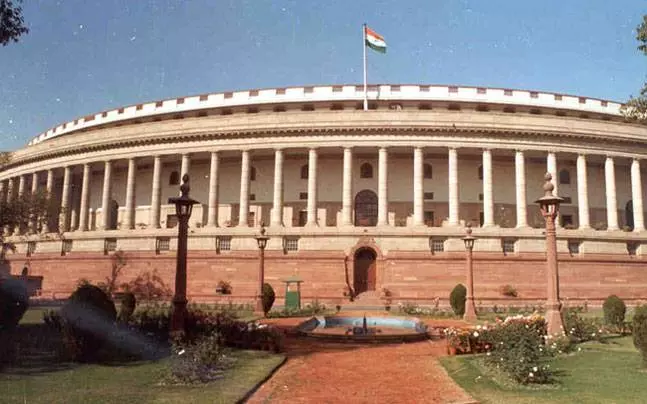
When democracy becomes the first casualty
text_fieldsIt is often said that times of crises reveal the strengths and weaknesses of someone. The same applies to a nation. The crisis in our health, economy and social sectors has exposed the weaknesses in the system. The healthy balance of power between the three pillars of the legislature, executive and judiciary is the hallmark of any constitutional democracy. The corona pandemic crisis shows how much this has decayed. The failure of the executive has already been discussed several times. The country paid a huge price for failures of the government such as demonetisation in the financial sector and lockdown in the health-economic sectors. Not consulting experts, officials or socio-political leaders is one mistake, the lack of heed for criticism is another. Advance deliberations and planning were discarded. The whims of a few got enforced upon the public. This irresponsibility went to the extent of discrimination between sections of people.. It destroyed the faith in the leadership.
Even the statistics quo, which is supposed to be sacred, has been diluted. The justifications given to the people for demonetization were false. The statistics on the spread and mortality due to COVID-19 are unreliable. Even ministers have given false information on handling the pandemic. Even asthe country was battling a hitherto unseen crisis, the priority for the Prime Minister was the campaign for West Bengal assembly elections. Rulers who blame the people for not following the protocol, employed political gimmicks instead of taking responsibility for their own inactivity. The public prop up the government, expensive as it is, in the hope of getting protection to their lives and livelihoods. Every job comes with responsibilities. When one fails to meet these, they must answer to the criticisms raised. How can ministers alone be exempted from it?
Another crime during the crisis is the neutralisation of legislative houses and the system of dialogue in a democracy. No longer do meaningful discussions happen in either the Lok Sabha or the Rajya Sabha. Even in the most critical stages of the crisis, the elected representatives of the people have no voice in what happens - nor do other political parties or their leaders. The time that was available between the waves was not utilized for debates, decisions, or preparations. When the Congress leader Rahul Gandhi told that the production and distribution of vaccines were paramount and that drugs that are being developed in other countries should be tested for approval and imported, union ministers mocked at him. Now when the situation is so dire, the government is forced to do the same, but with tighter constraints of time. The federal system is the power of Indian democracy. States need access to resources and technical support to curb the pandemic, along with the freedom to make decisions at the local level. However, that is not what is happening. The country is witnessing a situation where power is centralized and that centre is inefficient.
The Judiciary is supposed to intervene remedially when the other two pillars err. However, there is an increasing tendency with the courts to be subservient to the government- particularly, the apex court. When lakhs of migrant workers were stranded or forced to walk thousands of kilometers during the lockdown, the Supreme Court heard the plea and sided with the government. They took the Solicitor General's word that there is no one on the roads and that everyone was safe in relief centres. They accepted the government's claim that the reports were fake news. Responding to the plea that the labourers ought to be paid their wages, the Chief Justice asked, when they were getting free food, why pay wages. When exhausted workers were run over by a train, the petition was simply dismissed. The cases of unjust imprisonments, in the destruction of liberties in Kashmir, the CAA, or the farm bills - the judiciary sided with the government in each of these cases. By doing so, it shirked its constitutional responsibility to be a corrective arm. In short, the country is not facing just a pandemic. The failure of the government is a murder of democracy itself. It is a lack of leadership that is deepening the health and financial crises.






















